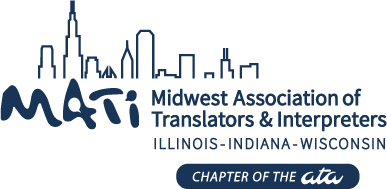Site search
Upcoming events
- No upcoming events
Midwest Association of Translators & Interpreters |
American Translators Association |
Powered by Wild Apricot Membership Software
Midwest Association of Translators & Interpreters |
American Translators Association |
